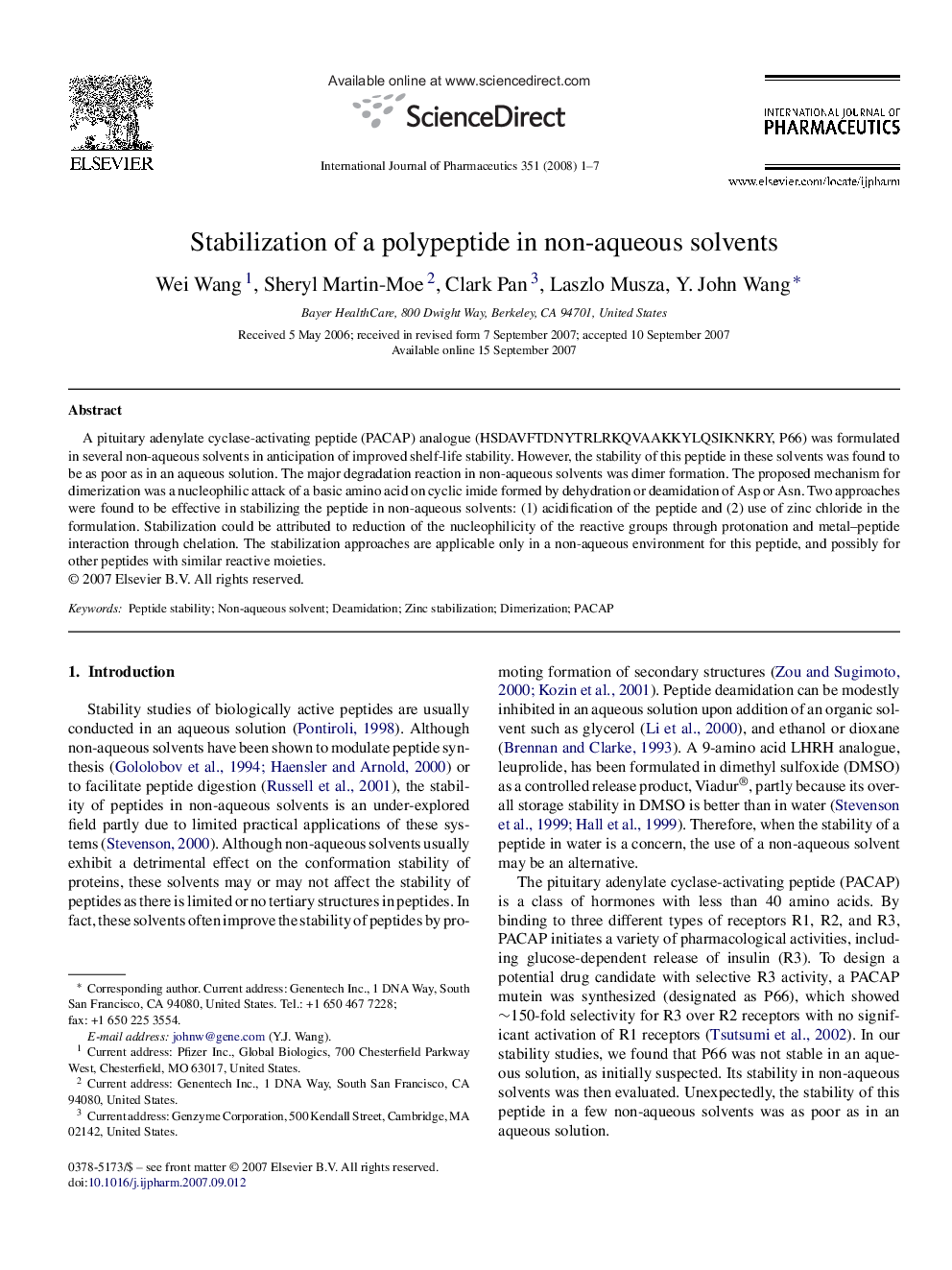| Article ID | Journal | Published Year | Pages | File Type |
|---|---|---|---|---|
| 2505613 | International Journal of Pharmaceutics | 2008 | 7 Pages |
A pituitary adenylate cyclase-activating peptide (PACAP) analogue (HSDAVFTDNYTRLRKQVAAKKYLQSIKNKRY, P66) was formulated in several non-aqueous solvents in anticipation of improved shelf-life stability. However, the stability of this peptide in these solvents was found to be as poor as in an aqueous solution. The major degradation reaction in non-aqueous solvents was dimer formation. The proposed mechanism for dimerization was a nucleophilic attack of a basic amino acid on cyclic imide formed by dehydration or deamidation of Asp or Asn. Two approaches were found to be effective in stabilizing the peptide in non-aqueous solvents: (1) acidification of the peptide and (2) use of zinc chloride in the formulation. Stabilization could be attributed to reduction of the nucleophilicity of the reactive groups through protonation and metal–peptide interaction through chelation. The stabilization approaches are applicable only in a non-aqueous environment for this peptide, and possibly for other peptides with similar reactive moieties.
